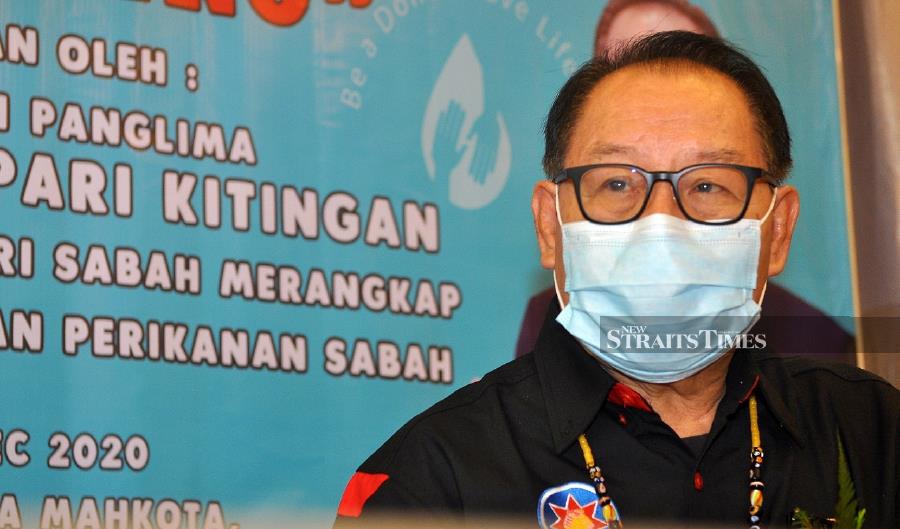By Olivia Miwil - December 29, 2020 @ 8:18pm
Deputy Chief Minister Datuk Seri Dr Jeffrey Kitingan. - NSTP/MOHD ADAM ARININKOTA KINABALU: Sabah is confident that the state is not affected by the meat cartel scandal, as the relevant authorities have taken the necessary strict measures regarding the importation of meat.
Deputy Chief Minister Datuk Seri Dr Jeffrey Kitingan said he is aware that the people of Sabah are also worried over non-halal meat being sold in the state, although it does not allow in raw meat from Peninsular Malaysia.
It was reported by the media that for the past 40 years, a cartel has been importing meat from non-halal-certified slaughterhouses in countries such as China, Brazil and Argentina and repackaging it before selling it as halal meat in Malaysia.
"The situation in Sabah is a little different, because Sabah has the authority to regulate the import and export of animals and animal products under the Animal Enactment 2015.
"Sabah has also been given Foot and Mouth Disease (FMD)-free status since May 2004.
"This status means Sabah will place tougher requirements on imports of animals and animal products to maintain the FMD-free status as recommended by the World Organisation for Animal Health (OIE)," he said in a statement today.
Kitingan, who is also the Agriculture and Fisheries Minister, added that Sabah is still dependent on meat imports, as the state currently produces only 10 per cent of its meat demand.
"Sabah imports only meat from OIE-certified FMD-free countries, or at least, the animal must be sourced from countries that are OIE-certified FMD-free areas.
"Currently, we only import meat from Australia and New Zealand, and a special facility in Aurangabad, India that produces frozen buffalo meat (Allana) to meet high-quality meat requirements," he added.
As for chickens, Sabah used to import them from the Netherlands and Denmark, but this arrangement is temporarily suspended due to the high occurrence of avian influenza in both European countries.
Kitingan added that Sabah only imports meat from premises registered under the list of overseas abattoirs approved by a central agency which includes the Malaysian Veterinary Services Department (DVS), Islamic Development Department of Malaysia (Jakim), and the Health Ministry.
He said the list is also publicly available on the DVS Malaysia website, but not all approved premises are allowed to import meat into Sabah, as they are still subject to the FMD-free status.
"Any organisation interested in importing meat may apply, but it must have a cold storage facility approved by the Sabah DVS.
"Sabah also only allows direct shipment from countries where the meat originated, to the state's ports or airports," he said, adding that only 16 companies have been approved by the authorities.
However, he welcomed members of the public to lodge a report should they find any sale of non-halal certified meat.

Comments
Post a Comment